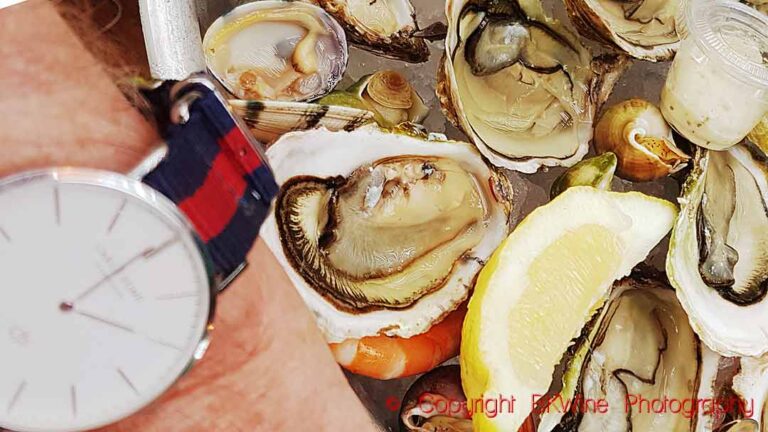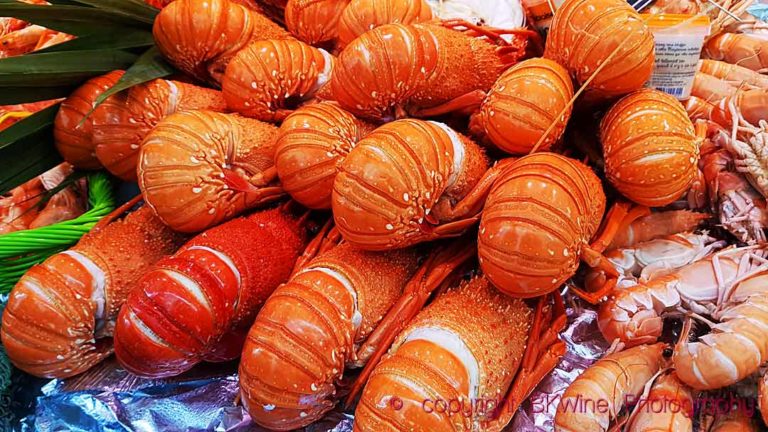
Much has been written about the anxiety one feels when having to choose a wine at a restaurant. How do I avoid choosing the “wrong” wine? How will it go with the food? What if the guests don’t like it? And so on.
Most of this anxiety (and advice) is misdirected and can be quickly forgotten. I’ll get back to why in a moment.
First, some speculation about different strategies for choosing wine from the wine list. If we now assume that it is you who has that pleasant task at the table.
“I take something I know” – this is (presumably) the most common tactic. You look at the list and find something you recognise. The security of recognition. Not a stupid tactic, in many ways. You know what you are getting and have an idea that you think it will go with the food and your own palate.
“Democracy” – you start reading the wine list and think it’s best to agree around the table, so you start reading aloud and ask the group what they think. It can get complicated and you may not agree even before the main course arrives.
“Choose a crowd-pleaser” – in order not to risk someone not liking the wine you’ve chosen, you pick something that everyone probably likes (see e.g. our “step 1” below for that). Maybe even a rosé because it goes with everything…
“Ask the sommelier” – one might think is a good tactic. But it is fraught with risk. The sommelier can hardly know what kind of wine you like and even if you discuss it, it can be a discussion full of pitfalls and misunderstandings. Another complication is that it varies quite a bit how much they actually know about wine. But it can be a rewarding tactic because it can lead to new discoveries and ideas, if he/she is good at listening (most important!) and explaining. But above all, don’t think that the sommelier obviously knows what “suits” your food. Only you know that. A wine that you like goes with food that you like, almost always. (By the way, a sommelier is just another term for a wine waiter, a person who is responsible for the wine in a restaurant. You don’t need any special training, but you should know wine of course. And on the contrary, just because you attended a “sommelier course” you are not a sommelier . Unless you work in a restaurant.)
“Check in advance” – that’s the tactic for the anxious or the one who likes long-term planning. Many restaurants have their wine list online (or on some site) so you can read it in advance and even look up the wine’s score (sigh!). Doesn’t that spoil a bit of the joy of discovery though?
There are certainly many other strategies for the wine selection at a restaurant. How do you do?
This is how we do it.
Step 1: Avoid the big well-known brands, the most talked about producers. They are simply unexciting.
Step 2: Consider the company. When we have dinner with our friends the natural wine enthusiasts, we look for the most weird thing we can find on the list. Perhaps we need to ask the staff (the “sommelier”) because these are often wines we have never heard of. Dinner with the Bordeaux enthusiast? Find something classic from Roussillon to make him open his eyes to something different (but good). And so on.
Step 3: Look for something that we don’t know about but would like to discover (after all, you often have some idea what it might be). Or something that we know but it’s been a long time since we drank (like Domaine des Deux Ânes last night). The choice is very much about finding something “fun”, a surprise, a positive discovery, preferably something we haven’t tried before.
But how does that strategy work when it comes to pairing the wine with the food?
Absolutely excellent. Choosing the “right” wine for food is not as complicated as many people think. There are very few wines that don’t “work”, whatever you have on your plate (but we’ve written a lot about that before, the simplicity of making successful food and wine pairings). Good food + good wine + (above all) good friends = a successful evening.
And now, on to wine tours:
Important about the wine tour to Chile and Argentina, January 15-28. Last chance:
This is one of our most spectacular trips. If you want to come along, you need to decide now! Book the wine tour to Chile and Argentina before September 15!
Also don’t forget the two other winter trips:
- South Africa in February (book before 15 October)
- New Zealand in March (book before 15 November)
These are tours with unique and magnificent experiences.
Wine travel in harvest time
Plan a wine tour in the harvest season:
- Champagne, September 27 – October 1
- Champagne and Bordeaux, September 27 – October 5
- Bordeaux, October 1-5
More info on our wine tours here. “World’s Top Wine Tours“. Tours with the people who know wine and who have an unrivalled experience of wine and tours.
Travel in wine regions with someone you trust.
Enjoy the Brief!
Britt & Per
If you appreciate what we do, you can help us: Tell your friends about the Brief or send it to them.
Like us and follow us on social media:
BKWine Magazine on Facebook | Wine Tours on Facebook
Twitter | Instagram | Linkedin | YouTube
This is just the introduction to the latest issue of the Brief. Subscribe to the BKWine Brief and you will get the whole edition in your mailbox next month.
What’s on at BKWine Tours
BKWine is also one of the world’s leading wine tour operators. Here’s what we currently have on our scheduled wine tour program:
- Champagne, September 27 – October 1
- Bordeaux and Champagne, Sept 27 – Oct 5
- Bordeaux, October 1-5
–
- Chile-Argentina, 15-28 January 2024
- South Africa, 8-18 February 2024
- New Zealand, 12-27 March 2024
We also make custom designed wine tours.
We’re different than most other wine tour operators. We are people who know wine inside out, who travel constantly in wine regions, who write award winning books about wine. Who do this out of passion. Our tours are different from others. More in wine tours: BKWineTours.com.











